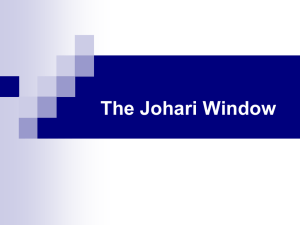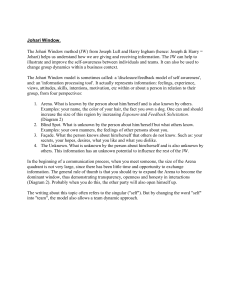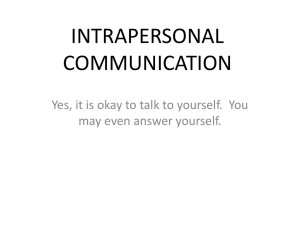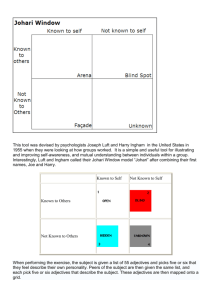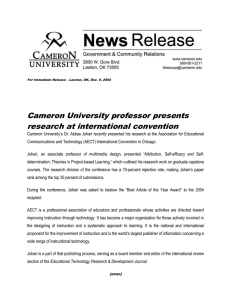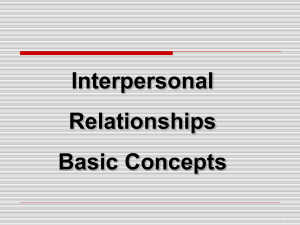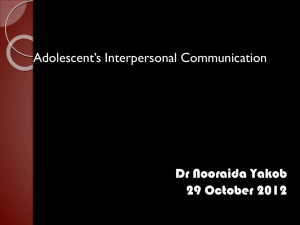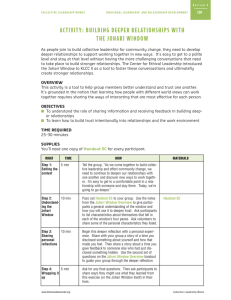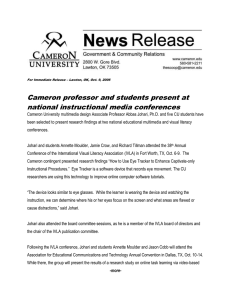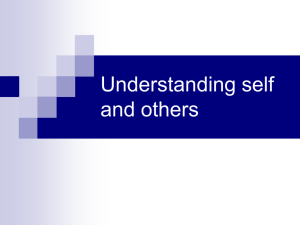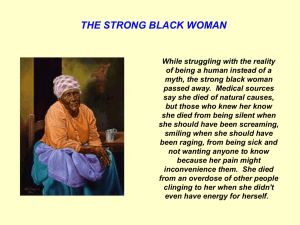The Johari Window
advertisement
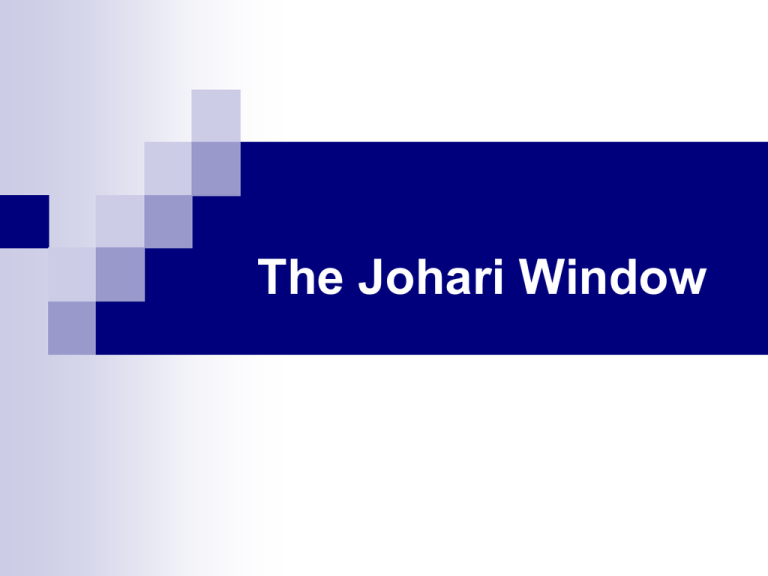
The Johari Window The Johari Window is a communication model that can be used to improve understanding between individuals. Developed by Joseph Luft and Harry Ingham (the word “Johari” comes from Joseph Luft and Harry Ingham). Two key ideas behind the tool: Individuals can build trust between themselves by disclosing information about themselves. They can learn about themselves and come to terms with personal issues with the help of feedback from others. Using the Johari model, each person is represented by their own four-quadrant, or four-pane, window. Each of these contains and represents personal information feelings, motivation - about the person, and shows whether the information is known or not known by themselves or other people. The four quadrants are: Quadrant 1: Open Area What is known by the person about him/herself and is also known by others. Quadrant 2: Blind Area, or "Blind Spot" What is unknown by the person about him/herself but which others know. This can be simple information, or can involve deep issues (for example, feelings of inadequacy, incompetence, unworthiness, rejection) which are difficult for individuals to face directly, and yet can be seen by others. Quadrant 3: Hidden or Avoided Area What the person knows about him/herself that others do not. Quadrant 4: Unknown Area What is unknown by the person about him/herself and is also unknown by others. Key Points: In most cases, the aim in groups should be to develop the Open Area for every person. Working in this area with others usually allows for enhanced individual and team effectiveness and productivity. The Open Area is the ‘space’ where good communications and cooperation occur, free from confusion, conflict and misunderstanding. Self-disclosure is the process by which people expand the Open Area vertically. Feedback is the process by which people expand this area horizontally. By encouraging healthy self-disclosure and sensitive feedback, you can build a stronger and more effective team.
